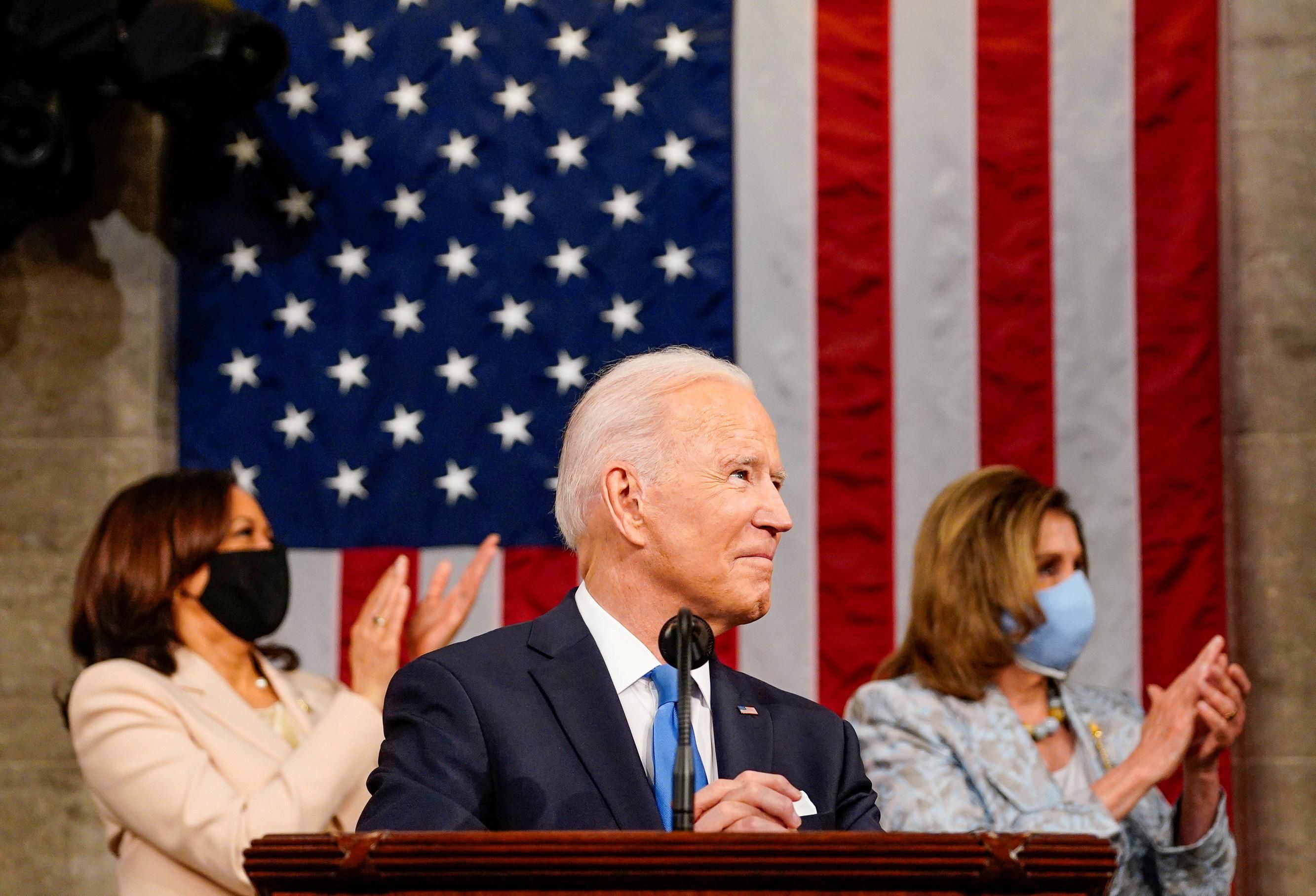April 29, 2021
6 trillion: President Biden has so far proposed a whopping $6 trillion in new government spending, the bulk of which would go to his American Jobs Plan and American Families Plan (his COVID relief bill has already passed). While the Biden administration says that tax hikes for wealthier Americans will cover the bill, Republicans say the agenda is too costly.
5: In response to several Republican-dominated states restricting the rights of transgender youth, the Biden administration has issued five executive orders focused specifically on strengthening LGBTQ rights, according to the Center for American Progress.
85: Around 85 percent of Americans who tuned into President Biden's first address to a joint session of Congress this week approved of his message, and most felt optimism about the direction of the country, according to a CBS poll. Just over half of those who watched (54 percent) identified as Democrats.
54: After his first 100 days in office, President Biden has a national approval rating of 54 percent. While this is well above Donald Trump's 42 percent approval rating during that same period, it falls short of all his predecessors dating back to 1974. In today's polarized America, US presidents can rarely count on support from members of the opposite party at all.
More For You
People in support of former South Korean President Yoon Suk Yeol rally near Seoul Central District Court in Seoul on Feb. 19, 2026. The court sentenced him to life imprisonment the same day for leading an insurrection with his short-lived declaration of martial law in December 2024.
Kyodo
65: The age of former South Korean President Yoon Suk Yeol, who was sentenced to life in prison on Thursday after being found guilty of plotting an insurrection when he declared martial law in 2024.
Most Popular
In an era when geopolitics can feel overwhelming and remote, sometimes the best messengers are made of felt and foam.
Hungarian Prime Minister Viktor Orban holds an international press conference in Budapest, Hungary, January 5, 2026.
REUTERS/Bernadett Szabo/File Photo
The Hungarian election is off to the races, and nationalist Prime Minister Viktor Orbán is facing his most serious challenger in 16 years.
How people in G7 and BRICS countries think their policies will effect future generations.
Eileen Zhang
Does skepticism rule the day in politics? Public opinion data collected as part of the Munich Security Conference’s annual report found that large shares of respondents in G7 and several BRICS countries believed their governments’ policies would leave future generations worse off.
© 2025 GZERO Media. All Rights Reserved | A Eurasia Group media company.
